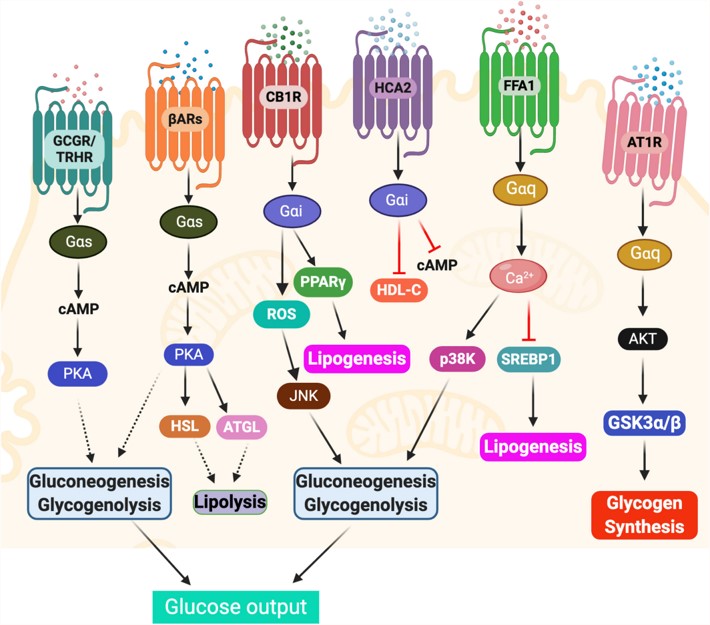An Optimization Platform of High-Throughput GPCR for Drug Discovery
G protein-coupled receptors (GPCRs) are a general term for a large class of membrane protein receptors; they are located on the cell membrane and translate extracellular signals into critical physiological effects. The common feature of these receptors is that they all have seven transmembrane α-helices in their three-dimensional structure, and all have G protein binding sites at the C-terminus (shown in Fig.1). G protein-coupled receptors activate G proteins or β-Arrestin in cells by binding to ligands, activating different intracellular pathways, and producing other biological effects. GPCRs are some of the most common drug targets in modern medicine. Of the 826 GPCRs in humans, approximately 350 members are considered druggable, of which 165 are effective drug targets. Because of the extensiveness and importance of GPCR expression in the human body has become an important drug target before discovering ligands. Therefore, most highly potent drugs developed over the past few decades directly target GPCRs. However, high-throughput screening methods for rapid detection of GPCRs-targeted drugs have not been optimized, which has become an obstacle to developing GPCR drugs, so the optimization of GPCR drug screening platforms has become very important.
 Fig.1 GPCR signaling in the regulation of liver metabolism.
Fig.1 GPCR signaling in the regulation of liver metabolism.
Researchers developed a high-throughput detection platform for GPCR drug screening based on Bioluminescence Resonance Energy Transfer (BRET) technology to detect the translocation of traps to the cell membrane in response to GPCRs stimulation. However, this platform is a further optimization of other BRET-based screening platforms, not directly fusing the reporter gene to the GPCR but by fusing the desired fluorophore to the cell membrane and related molecules in the GPCRs reaction pathway, and the receptors are thus kept unmodified, and biases in the results of screening drugs due to changes in GPCRs function are avoided. This platform can maintain the high sensitivity of the BRET assay and provide more accurate and reliable screening results, which has great potential in the screening of GPCR drug targets.
The Advantages of this platform include:
- Screening with high sensitivity
- High-throughput screening
- Screening results are more accurate and reliable
Potential Applications
- Screening of GPCR drug targets
- Screening of GPCR ligands
- Determination of Pharmacokinetics
Profacgen is a state-of-the-art protein service provider. We provide custom protein services in the biological sciences, enabling access to the latest tools, techniques, and expertise with competitive pricing and rapid turnaround time. We serve a broad spectrum of industrial and academic clients committed to delivering high-quality data and customer services.
Please do not hesitate to contact us for more details if you are interested in this new method, and we will provide a considerate service for you. At the same time, we also offer other RNA-protein interaction detected services; please move to our website for more details.
Reference
- Barella LF, Jain S, Kimura T, Pydi SP. Metabolic roles of G protein-coupled receptor signaling in obesity and type 2 diabetes. FEBS J. 2021 Apr;288(8):2622-2644. DOI: 10.1111/febs.15800.